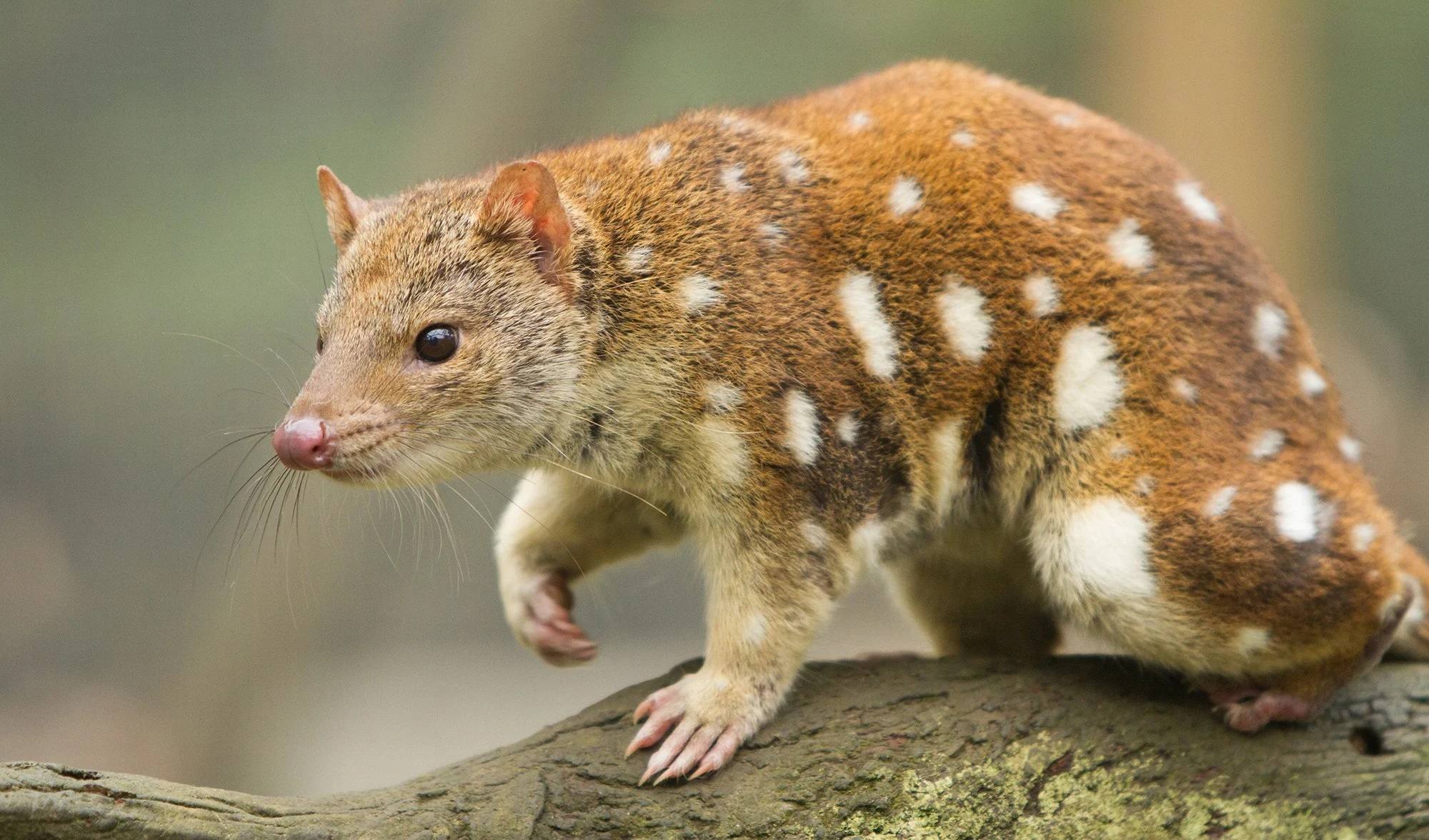
Quolls are fascinating creatures that are native to Australia, Papua New Guinea, and the surrounding islands. These small to medium-sized marsupials belong to the family Dasyuridae, which includes other iconic Australian animals such as kangaroos and koalas. Quolls are known for their unique appearance, agile nature, and carnivorous diet.
In this article, we will explore 10 interesting facts about quolls that will give you a deeper understanding and appreciation for these captivating animals. From their conservation status to their hunting techniques, these facts will showcase the diversity and importance of quolls in their ecosystems.
Key Takeaways:
- Quolls are unique Australian marsupials with beautiful spotted fur, strong climbing abilities, and a crucial role in their ecosystems. Conservation efforts are essential to protect them from extinction.
- As nocturnal, territorial, and carnivorous creatures, quolls play a vital role in controlling small mammal populations and maintaining ecosystem balance. Awareness and conservation efforts are crucial for their survival.
Quolls are unique Australian marsupials
Quolls are fascinating creatures that are native to Australia. They belong to the family Dasyuridae, which includes several small and carnivorous marsupials.
There are four species of quolls
There are four species of quolls: the Northern Quoll, the Spotted-tailed Quoll, the Eastern Quoll, and the Western Quoll. Each species has distinct characteristics and habitats.
Quolls are known for their beautiful spotted fur
One of the most distinctive features of quolls is their beautiful spotted fur. The spots on their fur vary in shape, size, and color, depending on the species.
Quolls are skilled climbers and jumpers
Quolls are agile climbers and jumpers, thanks to their strong hind legs and sharp claws. They can easily climb trees and leap long distances to catch their prey.
Quolls are carnivorous
Quolls are carnivorous predators that primarily feed on small mammals, birds, reptiles, insects, and even fruits. They have sharp teeth and powerful jaws to help them capture and devour their prey.
Quolls have a unique breeding system
Quolls have a polygynous mating system, where one male mates with multiple females. The females give birth to small and underdeveloped joeys, which then crawl into the mother’s pouch to continue their growth and development.
Quolls are nocturnal animals
Quolls are predominantly active during the night. They have adapted to a nocturnal lifestyle to avoid competition with other predators and take advantage of their excellent night vision.
Quolls are territorial creatures
Quolls establish and defend their territories, marking them with scent and vocalizations. They are solitary animals and have specific areas where they hunt, rest, and raise their young.
Quolls are at risk of extinction
Due to habitat loss, predation by introduced predators, and disease, all species of quolls are currently facing the threat of extinction. Conservation efforts are being made to protect these unique and important marsupials.
Quolls play a vital role in ecosystems
Quolls play an essential role in maintaining balance within their ecosystems. As carnivorous predators, they help control populations of small mammals and pests, contributing to the overall health and stability of the ecosystem.
In conclusion, the 10 Facts About Quolls highlight the uniqueness and significance of these Australian marsupials. Their beautiful spotted fur, carnivorous diet, and specialized breeding system make them fascinating creatures to study and protect. As efforts to conserve their populations continue, it is crucial to raise awareness about these remarkable animals and the role they play in maintaining healthy ecosystems.
Conclusion
Quolls are fascinating creatures that are often overlooked. From their diverse species to their unique characteristics, there is so much to learn about these small carnivorous marsupials. With their striking appearance and important role in the ecosystem, quolls deserve our attention and protection. Whether you are a wildlife enthusiast or simply curious about the animal kingdom, exploring the world of quolls will surely delight and inform. So, let’s continue to appreciate and safeguard these remarkable creatures for future generations.
FAQs
1. Where can quolls be found?
Quolls are native to Australia, Tasmania, and New Guinea.
2. Are quolls endangered?
Some species of quolls, such as the northern quoll and the eastern quoll, are considered endangered due to habitat loss and predation by introduced species.
3. What do quolls eat?
Quolls are carnivorous and feed on a variety of animals including insects, small mammals, birds, reptiles, and even other quolls.
4. Do quolls have any predators?
Quolls face predation by larger mammals, such as foxes and cats, as well as birds of prey.
5. How long do quolls live?
The lifespan of quolls varies between species, but they generally live for around 2 to 5 years in the wild.
6. How many species of quolls are there?
There are six recognized species of quolls: the eastern quoll, northern quoll, western quoll, spotted-tailed quoll, New Guinean quoll, and bronze quoll.
7. Are quolls solitary animals?
Quolls are mostly solitary animals, except during the breeding season when males and females come together to mate.
8. Do quolls have any unique features?
Quolls have distinct white spots on their fur, making them easily identifiable. They also have sharp teeth and powerful jaws.
9. How do quolls reproduce?
Female quolls have a unique reproductive process called embryonic diapause, where they can pause the development of their embryos until environmental conditions are favorable.
10. Are quolls beneficial to the ecosystem?
Yes, quolls play a vital role in controlling populations of smaller animals, such as rodents and insects, helping to maintain a balanced ecosystem.
Was this page helpful?
Our commitment to delivering trustworthy and engaging content is at the heart of what we do. Each fact on our site is contributed by real users like you, bringing a wealth of diverse insights and information. To ensure the highest standards of accuracy and reliability, our dedicated editors meticulously review each submission. This process guarantees that the facts we share are not only fascinating but also credible. Trust in our commitment to quality and authenticity as you explore and learn with us.
